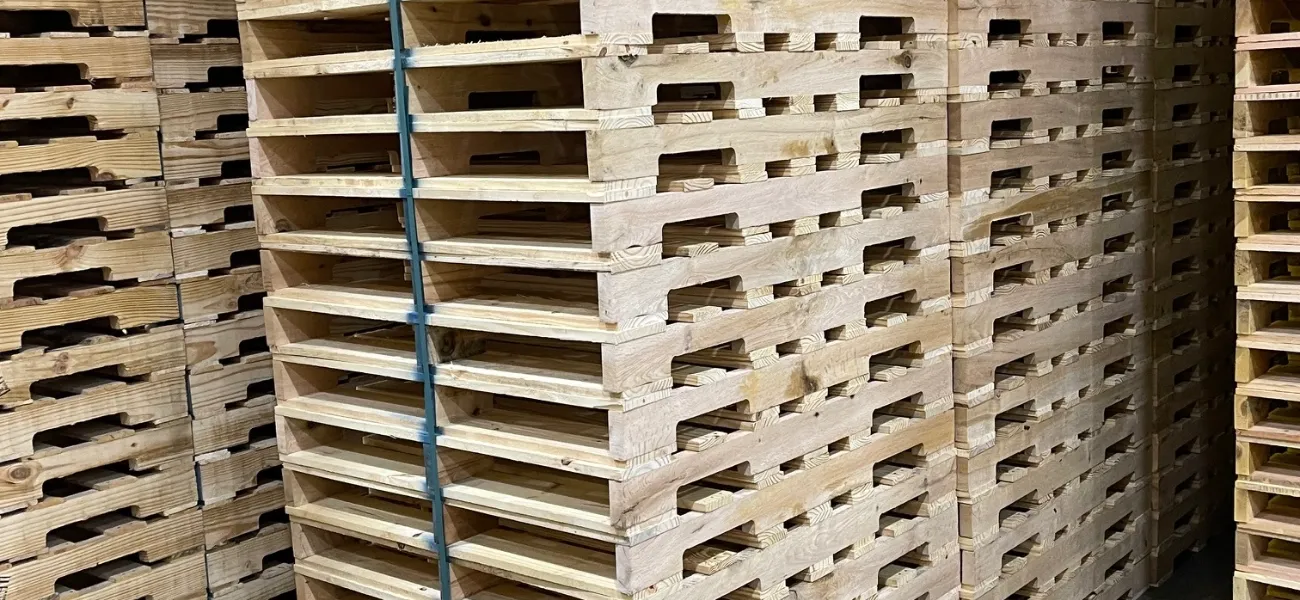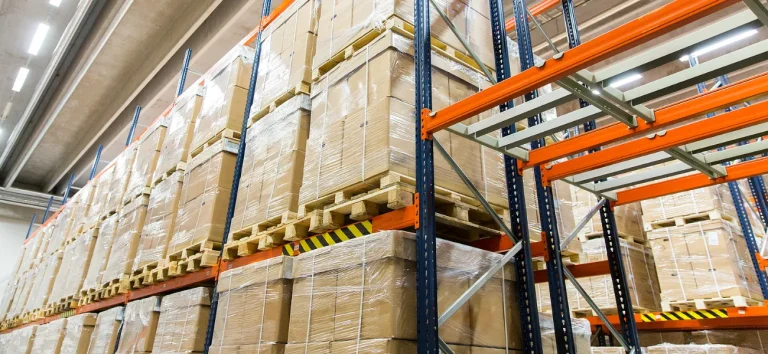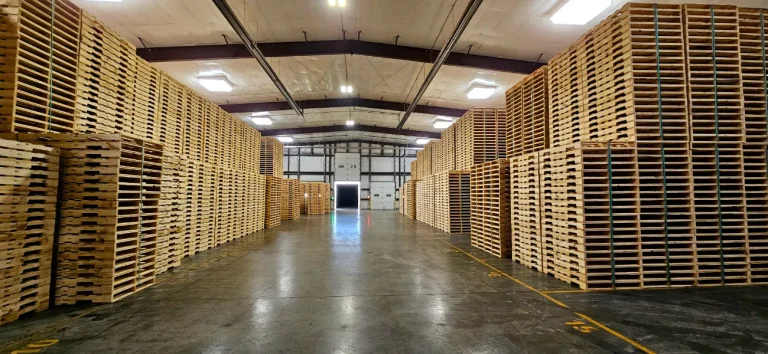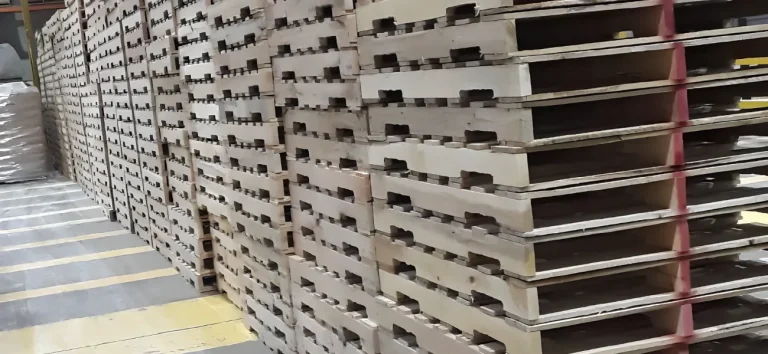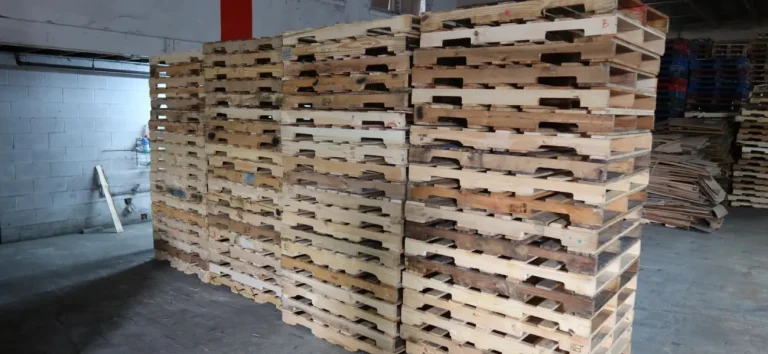Why Heat-Treated Pallets Are Essential for Export Compliance—and How to Avoid Shipping Delays
When your products are crossing international borders, the last thing you want is for them to be turned around at customs—not because of the goods themselves, but because of the pallets they’re riding on.
Heat-treated pallets are more than just a shipping preference. They’re a global compliance requirement governed by ISPM-15, and failing to use the right ones can result in delays, fines, rejections, and damaged relationships with overseas clients or partners.
In this article, we’ll break down what heat-treated pallets are, why they’re necessary for exports, and how PalletMaxx helps you avoid costly mistakes that can derail your shipments.
What Are Heat-Treated Pallets and Why Are They Required?
Heat-treated (HT) pallets are wooden pallets that have been exposed to a specific level of heat to eliminate pests, pathogens, and fungi that might be hiding in the wood. This process is not just a matter of preference—it’s a global mandate under ISPM-15, a regulation developed by the International Plant Protection Convention (IPPC).
The goal of ISPM-15 is to prevent the international spread of wood-borne pests that could damage forests, agriculture, and ecosystems. Countries around the world now require that any wood packaging material—including pallets, crates, and dunnage—must be either heat-treated or fumigated and properly certified before it can cross their borders.
In short, if you’re exporting using wooden pallets, you need heat-treated, ISPM-15-compliant pallets. No exceptions.
What Happens If You Ship Without Certified Heat-Treated Pallets?
Many companies underestimate the consequences of non-compliance until it’s too late. Customs officials at international ports are trained to look for the proper markings and will not hesitate to stop your shipment if something seems off.
Common issues that can cause problems include:
-
- Using untreated or recycled pallets that lack certification
- Pallets with faded, smudged, or missing HT stamps
- Assuming a pallet is compliant because it's “used” or “looks solid”
- Relying on vendors who don’t guarantee ISPM-15 certification
The consequences of these errors are serious. You may face:
-
- Delayed or held shipments that sit idle while the issue is investigated
- Forced return or destruction of your products and pallets
- Financial penalties, added freight costs, and lost time
- Strained relationships with international customers who expected on-time delivery
If your shipment is time-sensitive—or if it’s part of a tightly orchestrated supply chain—this kind of delay can cause a ripple effect that’s difficult to recover from.
What Does ISPM-15 Compliance Actually Look Like?
To be compliant, a pallet must be:
- Made from heat-treated wood processed at a core temperature of 56°C (132.8°F) for at least 30 minutes.
- Stamped with the official ISPM-15 mark, which includes:
-
- The IPPC logo (a stylized wheat symbol)
- The country code (e.g., “US” for United States)
- A unique certification number tied to the treatment facility
- The abbreviation “HT” to confirm heat treatment (or “MB” for fumigation)
This stamp must be legible and placed in at least two visible locations on the pallet. Simply using wood that was heat-treated isn’t enough—the pallet needs documented and traceable compliance.
Do All Countries Enforce ISPM-15?
Nearly every major international trading partner now enforces ISPM-15 standards, including:
-
- European Union
- United Kingdom
- Canada
- Mexico
- Australia
- China
- Brazil
- India
- South Korea
- And many more
Even some countries that previously had exceptions have tightened enforcement. If your business ships globally, it’s best to assume that every destination requires full ISPM-15 compliance—because the risk of assuming otherwise is simply too high.
How PalletMaxx Ensures Compliance and Prevents Shipping Delays
At PalletMaxx, we don’t leave compliance to chance. We understand the high stakes involved in international logistics, and we take every step to ensure that the pallets you receive are fully certified, properly marked, and ready to move across borders without issue.
Here’s how we do it:
-
- Certified Heat-Treated Pallets in Stock: We maintain a steady inventory of ISPM-15-compliant pallets—both new and remanufactured—that are ready for export. Whether you need standard 48x40 pallets or custom sizes, we’ve got you covered.
- Clear, Legible Marking: Every heat-treated pallet we ship is stamped according to ISPM-15 standards in multiple visible locations, ensuring smooth inspections at customs.
- Traceability & Documentation: Need paperwork for an audit or compliance check? We can provide documentation and traceability back to the licensed treatment facility.
- Rush Orders for Export-Ready Pallets: Because we process and ship over 60,000 pallets a day, we can respond fast—often same-day—for clients with urgent export needs.
- Expert Guidance: Not sure if a particular shipment requires heat-treated pallets? Our team is trained in global shipping compliance and can walk you through what’s required for your destination country.
Final Thoughts: Compliance Starts with the Right Partner
Using heat-treated pallets isn’t just a box to check—it’s a critical part of your export compliance strategy. And it’s one that can either protect your reputation or put your entire shipment at risk.
Don’t trust your international shipments to vendors who might cut corners or provide uncertified products. At PalletMaxx, we help you stay compliant, confident, and on schedule—every single time.
Need Certified Heat-Treated Pallets Fast?
Reach out today for a quote or to learn more about our heat-treated pallet solutions. We’ll help you stay export-ready and avoid costly customs delays—no surprises, no setbacks.

